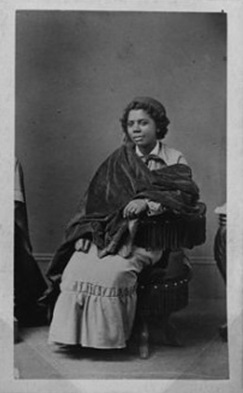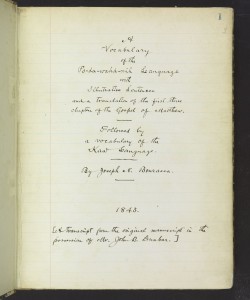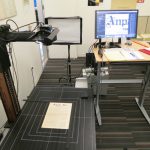My favorite chronicler of natural and cultural histories in early America is Englishman John Josselyn. He was a curious and good-humored observer of the 17th-century inhabitants of northern New England, more »
Tag: Native Americans
Is there a food in North America more intrinsically linked with the landscape of the past and nostalgically intertwined with a holiday feast than the cranberry? From Cranberry Lakes in Nova Scotia, Cranberry River of West Virginia, Cranberry Pond in Sunderland, Massachusetts, the Cranberry Isles of Maine, Cranberry Mountain in New York, Cranberry Meadow in New Jersey, and many a Cranberry Bog dotting coastal areas, the plant deserves the appellation of First or Founding Fruit. It is one of the indigenous foods in North America widely cultivated today. The narratives of the places where the berries once grew wild and of the loss of these habitats can be recovered from historical sources.

Native Americans have had a tremendous impact in numerous arenas of American life. This is particularly true in the visual arts. In celebration of Native American Heritage Month we’re highlighting artists of American Indian descent who have had a significant presence in the American Art and Portrait Gallery (AA/PG) Library’s collections.

J.N. Bourassa’s A Vocabulary of the Po-da-wahd-mih Language is the latest addition from the Libraries to the Smithsonian Transcription Center. The Vocabulary was transcribed around 1890 from the original, which dates to 1843. The Potawatomi have traditionally inhabited the Upper Mississippi River region as well as Indiana and Kansas, and are making efforts to promote the use of their native language, a sub-group of the Algonquian language family.

This post was contributed by Ann Juneau, Department Head, National Museum of Natural History Library.
A determined need to know more about their heritage and history is what drove the Shakopee Mdewakanton Sioux Community in Minnesota to want to digitize two newspapers of their ancestors in the Dakotas. First contacting the American Indian Studies Research Institute at Indiana University, The Community began their quest. The communique for assistance then went on to a Smithsonian Institution emeritus anthropologist, and close colleague of the Institute’s director, and the kinetic energy was established.
"You'll like it better, or my name isn't Orville Redenbacher," says the famous king of popcorn, whose July birthday is being celebrated by the Libraries. Orville, the smiling gentleman with more »


